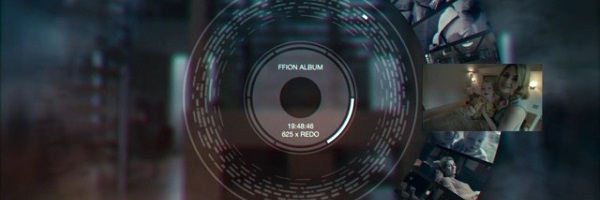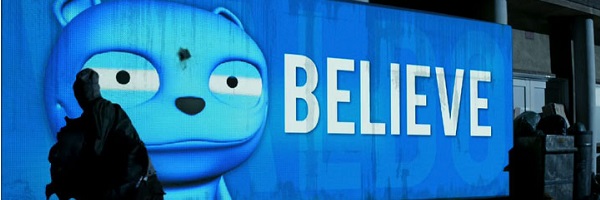The following is every episode of Black Mirror ranked from least to most depressing, horrifying and bleak. It’s not a ranking of quality or rating – despite the countless lists out there, I think that’s a fools errand to try.
Needless to say, this is full-on spoiler-ridden throughout and assumes you’ve watched all of it.

- San Junipero

An uplifting and heartwarming tale of a colour-blind, able-blind, even gender-blind love that crosses the boundaries of reality and even time itself? Come on, Brooker, it’s like you’re not even trying to make us feel bad!
- Nosedive

The idea of the entire population wrapped up in superficial niceties and their own rating and public perception – and unable to tell the truth or be honest because of it – is pretty frightening. Yet by the end , with the help of a straight-talking trucker and a bottle of booze, Lacie finally breaks free of that system (unlike Bing, see below) and finds some joy in shouting ‘fuck you’ at a stranger. Not a particular down-note to end on, as it tells us there is such a thing as an escape from the bullshit.
- Playtest

While played out as a survival horror with a Twilight-Zone-like twist, I don’t think this is particularly bleak, as such. While the twist plays with irony – death by cell phone – Playtest lacks the truly depressing undercurrent; the horror plays out as horror, but doesn’t at any point bleed into the real world or tell us anything frightening about ourselves as we are right now.
- Be Right Back

While the thought of Haley Atwell keeping a robot-clone of her dead fiancé in the loft, isolated from the world, for years on end is outright creepy, Be Right Back doesn’t really hit you over the head with the existential dread of the situation as hard as it could. It has its thought-provoking moments – how well do our online selves really reflect who we are? – none of it is likely to make you stare blankly at a wall for an hour.
- The Entire History of You

The bleak-fest truly begins now. With all of your life recorded forever, the ramifications are both huge and frightening.The Entire History of You confines this, thankfully, to just the exploration of how it would impact a blatantly dysfunctional and untrusting relationship. There’s more that could be explored in this world and the consequences of Grains, but it’s left in the background and merely hinted at rather than brought to the front.
- The Waldo Moment

While this tends to get a reputation as having a downer ending, I find the idea of an apocalyptic dystopia happening thanks to a blue cartoon character a little… just a little, mind… too far-fetched. So while it tries, I think it loses bleak points for just being a bit “wham” about it, rather than showing a slow descent into a believable nightmare. The real depressing aspects of this happen long before that end scene. How an artist’s creation can be ripped form them and abused for political ends, how your life can be torn apart even by something you didn’t ask for – and can’t stop.
Of course, some of the specifics couldn’t happen ever. If a popular figure who had been sucked out of right-field into the political sphere demanded that their audience physically assault a protester, they’d never do that. Right?
- The National Anthem

By a long shot so far, this is the most realistic Black Mirror episode. It doesn’t require a technology that we don’t, so far, possess. Nor does it require a mind-set that we don’t already have. So it really gains some bleakness points for being set merely five minutes into a painfully plausible future.
In addition to that, the bleak facts of the plot still stand; despite all the efforts, the PM still had to fuck a pig, the population were all complicit in it, public opinion forced it and… despite the brave face put on by the PM and his wife, the final scene says that the incident ruined them forever. And in a final twist of irony in the penultimate scene, it turns out he didn’t really have to do it, either. All the damage was for nothing.
- Fifteen Million Merits

This is a straight up satire – if heavy-handed at times – of today. The weird futuristic setting is just window dressing. People ride bikes and chase superficial ‘stuff’ that isn’t real.
Yet despite Bing’s passionate speech, his realisation of how the system eats people up, how he figures out that it’s all for nothing and just for digital ‘stuff’… he’s still, in the end, consumed by that very system. The Hot Shot judges twist him and roll with his punches expertly, and fold him back into the crowd. He becomes part of it, swapping his old cell and its screens for a new cell with bigger screens. Fifteen Million Merits tells us that there is no escape from The System.
- Men Against Fire

Like with Bing’s fate in Fifteen Million Merits, Stripe is eventually consumed by the System once his eyes have been opened to it. Yet, while Bing’s downfall is a reticent bargain, Stripe very much consents to having reality masked for him. Both initially through his potentially wilful ignorance, and once more under threat. He’s willingly eaten by the system and his reality replaced with a lie – and forced to by the more horrifying reasons that broke him. His reality is forever distorted and replaced, and the system marches on as before with no escape from it.
Men Against Fire also serves as a warning far beyond just its satire of conflict and killology. It asks us what do we think of our fellow humans when we stop seeing them as human? History proves you don’t need an implant to do that, just a newspaper and the right media spin.
- Hated In the Nation

There are bigger body counts found in some Twilight Zone and Outer Limits twists, but this has the added curveball that the victims effectively and selectively sealed their own fate – by willingly partaking in a ‘game of consequences’ and failing to heed the message. They fail to realise that in inciting death and violence toward people, they were very much as culpable and guilty of hate as the people they wanted to condemn. They suffered for it. It’s a pretty grisly conclusion.
There’s the added bleak bonus that it seems like the next figure of hate will become the lead detective that, according to the story, did whatever she could to save people – so wrapped up in the need to hate someone, anyone, and to have a lightning rod for their anger, people failed to heed any message or moral from the events. They want to demand the truth of what happened, but even if they got it, would they be satisfied? Or would they move onto the next character they want to focus on?
- Shut Up and Dance

If Black Mirror has one recurring theme beside techno-paranoia, it’s vigilante justice. Shut Up and Dance is really the apex of people taking the law into their own hands that’s seen throughout a number of episodes. In the darkest way possible through outright blackmail, unnamed and unknown hackers can make people rob banks, steal, and fight to the death.
And make no mistake, there are people out there who will watch this and cheer on the villains of the piece, happy that the ends justify any amoral means or any innocents that get caught up along the way. Anything is possible so long as it satisfies peoples’ lust for a central hate-figure. That’s the depressing part.
- White Christmas

While there’s three interwoven stories in this to look at, they all have the unifying factor of “people are shitheads”. Do people really care for their fellow people, or are they happy enough to brush their morality aside on the faintest justification? White Christmas says, in very clear terms, the latter.
There are a lot of cues in this that suggest that people are very much aware that Cookies are sentient, effectively-real copies of people. They know, but they don’t care. They have no qualms in torturing them, abusing them, and mentally destroying them. They treat them as jokes to be used, no matter how malicious the tortures they’ll inflict.
After all, it’s just code, isn’t it? It’s just computer code executing self-aware patterns, rather than neurotransmitters executing self-aware patterns… can’t you see the difference?
- White Bear

This is hugely bleak for two reasons.
Firstly, you know that if a “Justice Park” where the sole inhabitant was tortured daily for the benefit of paying customers, it would be an overnight success. The baying mob and armchair vigilantes would leap at it. As always, people are shitheads and anything’s okay so long as it satisfies the need for a central figure of hate that can be suitably dehumanised. This isn’t even a case of ends justifying means – there is no end here, the justice park has no end game in sight, the means are the means, and the mob’s bloodlust is the only justification. You just know there is something seriously dysfunctional going on in the world of White Bear, one where the masses can be easily placated with a figure to literally hate at will, to throw eggs at and to chant at, and then to torture and beat day after day after day with no real chance of the basic tenets of criminal justice of retribution, reformation or prevention. It is revenge and distraction only.
Secondly, and for me more importantly, there’s the fact that the entire concept of the Justice Park is ultimately pointless and flies in the face of all our civilised notions of justice. The revenge is superficial at best. With her memory wiped every night, Victoria Skillane is – for all practical and philosophical purposes – not the same person as the one who filmed a horrific crime on video, as evidenced by her protective instinct displayed throughout the episode in the run-up to the twist. The public, ultimately, are getting their thrills from torturing an empty shell, the mere collection of atoms that just so happened to be around a crime as it was committed. No different to cutting off the hand that pulled a trigger, and putting that in prison to endure the punishment.
In a very real sense, Victoria Skillane the murderer died long before the episode begins – Victoria Skillane the unaware innocent is punished instead. People probably know this, and are more than capable of coming to this realisation, but they don’t care. Yet despite the nonsensical nature of the whole thing, people go along with it. And we all know that people in reality would happily go along with the scheme, too, to satisfy superficial lust at the expense of justice, law and even basic logic.
White Bear’s treatment of how we would react to public punishment and its side-stepping of conventional justice makes it bleak, horrifying, and liable to cause some sleepless nights hoping it never comes true.

















